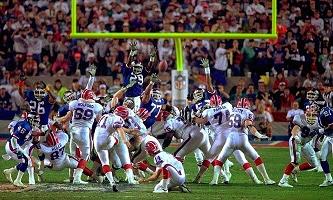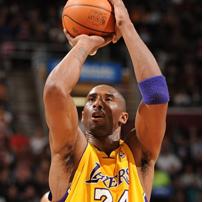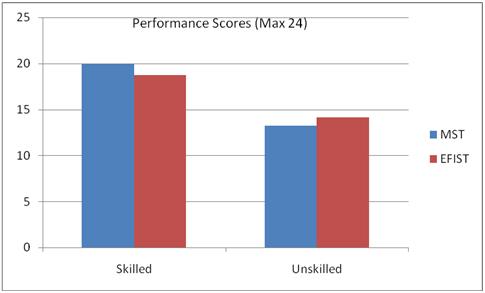ttentional Focus and Best Use of Self-Talk in Closed Skill Tasks
 International
rugby stars and place kickers Dan Carter, Ronan O Gara and Jonny
Wilkinson, among many others place the ball, set themselves, say
something to themselves and mostly go about their business and put the
ball between the posts.
International
rugby stars and place kickers Dan Carter, Ronan O Gara and Jonny
Wilkinson, among many others place the ball, set themselves, say
something to themselves and mostly go about their business and put the
ball between the posts.
So what exactly are they saying and why?
Research has shown that the use of psychological techniques can
enhance sporting performance (Krane & Williams, 2006). Use of
psychological techniques, cognitive strategies or mental training has
been commonly used by high performance athletes for many years. Aided by
the growth and development of sport psychology research in recent
times, systematic cognitive strategies have become even more
common-place as athletes seek out ways to improve performance and gain
advantages over opponents. One mental strategy frequently used by
athletes is self-talk (Hardy Oliver & Todd, 2009).
Self-talk has been shown to be beneficial for the learning of motor
skills (Hardy, 2006). It can be defined as verbalization or statements
athletes repeat to themselves prior to or during skill execution. These
verbalization may be designed to affect motivation, attentional control,
concentration and information processing. Landin (1994) suggested that
the use of appropriate cue words may aid task focus by increasing focus
on task relevant stimuli. Hardy (2006) suggests that the use of cue
words may help athletes adjust their focus of attention towards a more
appropriate attentional focus for completion of tasks.
Much empirical research has been carried out investigating the impact
of such statements. Much of this has focused on motivational and
instructional self talk. Motivational self talk tends to boost
confidence and belief in one’s ability helping to raise performance
while instructional tends to divert focus of attention on to certain
elements of a movement to increase attentional focus and help task
execution accordingly.
 Wulf
et al’s attentional focus work draws a distinction between internal and
external focus and shows that for skilled athletes, an external focus
is better than an internal focus of attention. This may because an
internal focus of attention draws attention towards little pieces of
movement, thus reducing automaticity of that same movement.
Wulf
et al’s attentional focus work draws a distinction between internal and
external focus and shows that for skilled athletes, an external focus
is better than an internal focus of attention. This may because an
internal focus of attention draws attention towards little pieces of
movement, thus reducing automaticity of that same movement.
Very little empirical research has differentiated between the
different types of self-talk for skilled athletes in sporting tasks. Of
such investigations, only power based motor tasks have been utilized.
Both examples (Todd and McGuigan (2008) in a rugby power jump task &
Goudas, Hatzidimitriou and Kikidi (2006) in a shot putt task) found
that motivational self-talk was best.
Interestingly, no work has differentiated between the different types
of self-talk for skilled athletes in closed skill tasks. That is until
now.
New and yet unpublished research (Begley & Hardy) distinguishes
that the most appropriate type of attentional focus will be dependent on
the skill level of the performer. Using 40 inter-county level Gaelic
Football free takers , this research investigated the differences
between externally focused instructional self-talk (EFIST) and
motivational self-talk (MST).
It is noteworthy that a two way ANOVA of data shows significant
results favouring MST over EFIST in the skilled condition (see Fig.1).
As this accuracy based study and all of the existing power based task
research using skilled athletes (Edwards et al (2008) and Goudas et al,
(2006)) replicate each other’s findings, it may be that motivational
self-talk may exceed externally focused instructional self-talk in all
tasks for skilled athletes by boosting athletes’ confidence and
reinforcing belief in natural movement processes and well-honed skills.
 This
will have ramifications for all sport psychologists working with elite
level performers on closed skill tasks such as American football field
goal, basketball free throw, rugby place kickers, dead ball specialists
in soccer, GAA free takers, golfers, snooker and darts players.
This
will have ramifications for all sport psychologists working with elite
level performers on closed skill tasks such as American football field
goal, basketball free throw, rugby place kickers, dead ball specialists
in soccer, GAA free takers, golfers, snooker and darts players.
As it stands, certain psychologists, based on Wulf et al’s previous
work have been guiding their athletes towards an external focus of
attention. While it may augment what the athlete is already doing, it
may not be the most effective way.
For more information, contact Elite Performance Sport Psychology at link below.
Elite Performance Sport Psychology Facebook Page
Keith Begley
MSc Applied Sport & Exercise Psychology.
Senin, 11 Maret 2013
Attentional Focus and Self-Talk
Langganan:
Posting Komentar (Atom)










0 komentar:
Posting Komentar